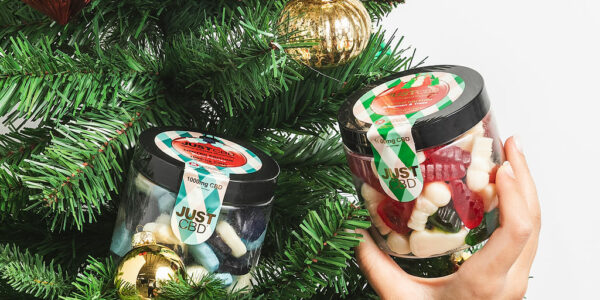
As pet owners, we constantly seek ways to enhance the well-being of our furry companions. With the increasing popularity of natural remedies, CBD (cannabidiol) has emerged as a promising option for pets. Derived from the hemp plant, CBD is a non-psychoactive compound celebrated for its potential to support overall health and address various conditions in both humans and animals. Let’s dive into how CBD can benefit pets, its applications, safety considerations, and how to integrate it into your pet’s wellness routine.
What Is CBD and How Does It Work for Pets?
CBD is a compound found in the cannabis plant, distinct from THC, the psychoactive component responsible for the “high” associated with marijuana. Hemp-derived CBD contains negligible amounts of THC, making it safe for pets.
The key to CBD’s effects lies in the endocannabinoid system (ECS), a complex network of receptors found in mammals. The ECS regulates critical functions like mood, pain, appetite, and immune responses. CBD interacts with these receptors, supporting balance and promoting homeostasis in the body.
Potential Benefits of CBD for Pets
Eases Anxiety and Stress
Many pets, especially dogs and cats, experience anxiety triggered by loud noises, separation, or unfamiliar environments. CBD is believed to have calming effects by influencing serotonin receptors in the brain, potentially reducing anxiety without sedating your pet.
Reduces Pain and Inflammation
CBD’s anti-inflammatory properties can be beneficial for pets suffering from chronic conditions like arthritis, hip dysplasia, or injuries. It may help alleviate discomfort and improve mobility, allowing aging pets to enjoy a higher quality of life.
Supports Epilepsy and Seizure Management
Seizures in pets can be challenging to manage. Emerging research suggests that CBD may reduce the frequency and intensity of seizures in animals, offering a natural complement to traditional treatments.
Improves Skin and Coat Health
For pets prone to allergies or skin irritations, CBD may provide relief by reducing inflammation and promoting healthier skin. Some topical CBD products are specifically designed to soothe itching and discomfort.
Enhances Digestive Health
Pets with sensitive stomachs or digestive disorders can benefit from CBD’s ability to regulate appetite and reduce nausea. This is especially helpful for pets undergoing treatments that may cause a loss of appetite.
Promotes Overall Wellness
CBD’s potential antioxidant properties may boost your pet’s immune system, helping them fend off illnesses. Additionally, its calming effects can contribute to better sleep and a more balanced demeanor.
How to Choose the Right CBD Product for Your Pet
The effectiveness of CBD largely depends on the product’s quality and suitability for your pet. Here are key factors to consider:
Opt for Pet-Specific CBD Products
CBD products formulated for humans may contain ingredients that are harmful to pets, such as xylitol or certain essential oils. Always choose products specifically designed for animals.
Check for Third-Party Testing
Reputable CBD brands provide lab-tested products to ensure they are free from contaminants and accurately labeled for potency.
Consider Your Pet’s Size and Needs
CBD comes in various forms—oils, treats, capsules, and topicals. Oils allow precise dosing, while treats may be more convenient for picky eaters. Topicals are ideal for localized skin issues.
Review Dosage Guidelines
Start with the lowest recommended dose and monitor your pet’s response. Dosage is typically based on weight and condition severity. Consult your veterinarian for personalized advice.
Safety and Potential Side Effects of CBD for Pets
CBD is generally well-tolerated by pets, but it’s essential to use it responsibly. Side effects, if any, are mild and may include:
- Dry mouth: Reduced saliva production may increase thirst.
- Drowsiness: A calming effect may cause slight lethargy in some pets.
- Diarrhea or changes in appetite: Rare and usually dosage-dependent.
Tips for Safe Use
- Consult Your Veterinarian: Before introducing CBD, discuss your pet’s health history and medications with a vet. Some drugs may interact with CBD.
- Start Low and Go Slow: Gradually increase the dosage until the desired effect is achieved.
- Monitor Your Pet: Observe any changes in behavior, appetite, or energy levels, and adjust accordingly.
Real-Life Applications: How CBD Helps Pets
Case Study 1: Relieving Separation Anxiety in Dogs
A five-year-old Labrador named Max struggled with severe separation anxiety whenever his owners left for work. Traditional calming aids had little effect. After introducing CBD oil into Max’s daily routine, his owners noticed a significant reduction in destructive behaviors and barking. Max appeared more relaxed and happy, even when home alone.
Case Study 2: Supporting Joint Health in Senior Cats
Mittens, a 12-year-old tabby, began showing signs of arthritis, including difficulty jumping and a reluctance to play. Her owner started giving her CBD treats designed for joint support. Within weeks, Mittens displayed improved mobility and returned to her playful self.
How to Integrate CBD into Your Pet’s Routine
- Choose the Right Time: Administer CBD during meals or times of heightened stress, such as before a trip to the vet or during thunderstorms.
- Make It a Treat: Many pets enjoy CBD-infused chews or treats, which can be a delightful addition to their diet.
- Be Consistent: Regular use may yield the best results, especially for chronic conditions.
What the Research Says About CBD for Pets
Scientific research on CBD for pets is still in its early stages, but initial studies are promising. A 2018 study published in Frontiers in Veterinary Science found that CBD significantly improved comfort and activity levels in dogs with osteoarthritis. Another study in Journal of the American Veterinary Medical Association highlighted CBD’s potential to reduce seizure frequency in dogs.
While more research is needed, anecdotal evidence from pet owners supports CBD’s effectiveness in managing various conditions.
Conclusion: Embracing Natural Wellness for Pets
CBD offers a natural, gentle way to support your pet’s health and wellness. Whether addressing anxiety, pain, or simply promoting a sense of calm, it’s a versatile tool that aligns with holistic approaches to pet care. By choosing high-quality products and consulting with your veterinarian, you can ensure your furry friend benefits safely and effectively from CBD.
My Experience with Just CBD’s Pet Products 🐾
As a proud pet parent, I’m always on the hunt for something that can keep my furry friends happy and healthy. Just CBD’s CBD For Pets line caught my eye, so I decided to give it a try. With treats and tinctures on offer, I went all-in to see how these products would hold up with my dog and cat. Here’s what happened when I put them to the ultimate test—my picky pets!
CBD Dog Treats – JustPets
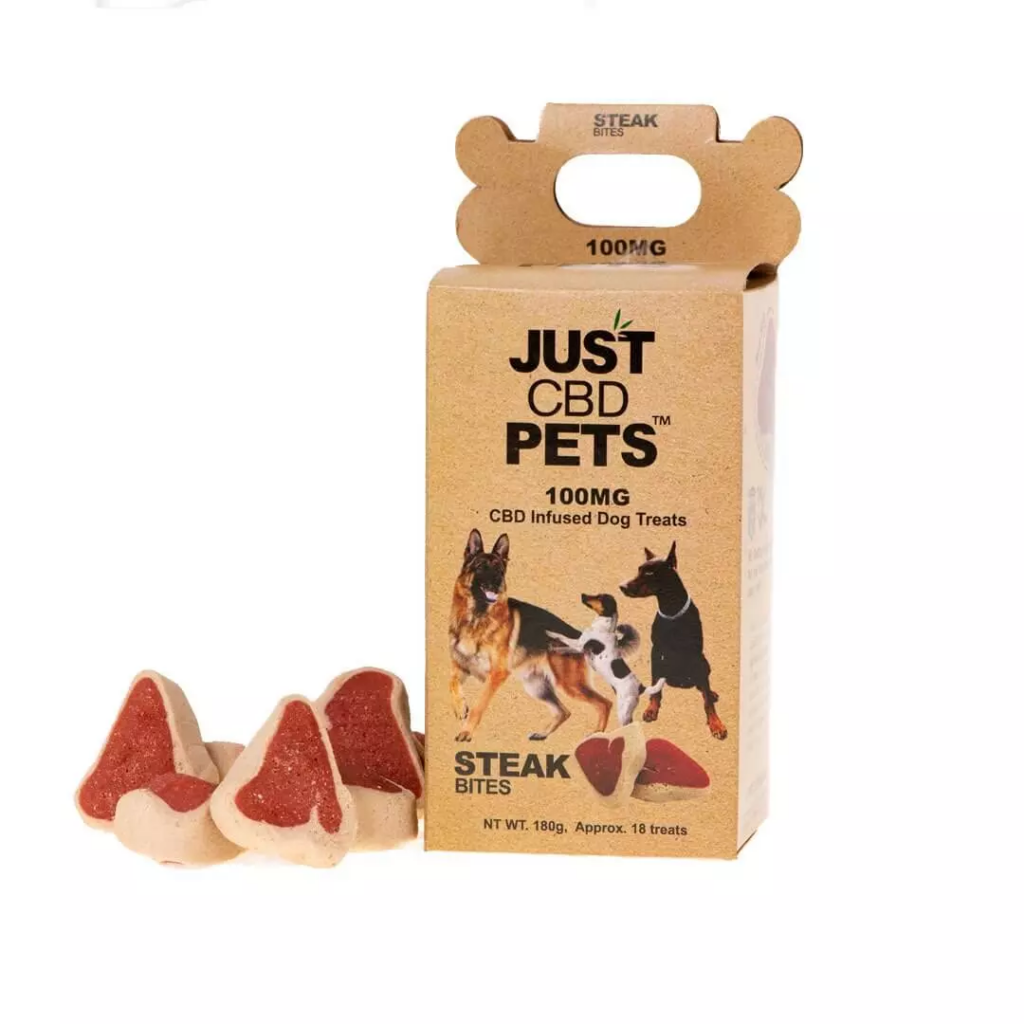
👉 Buy Here
I started with these adorable dog treats, which come in flavors like steak bites and chicken meatballs. My Labrador, Max, went bananas for these! The treats were easy to break apart for portion control, and they didn’t have a strong medicinal smell (a bonus for me).
What I Liked:
- Max visibly chilled out during thunderstorms—something he usually hates.
- Convenient packaging and portion sizes.
What I Didn’t Like:
- Limited flavor options if your pet is extra fussy.
Rating: ★★★★★ – Max-approved for taste and results.
Organic Pet Treats
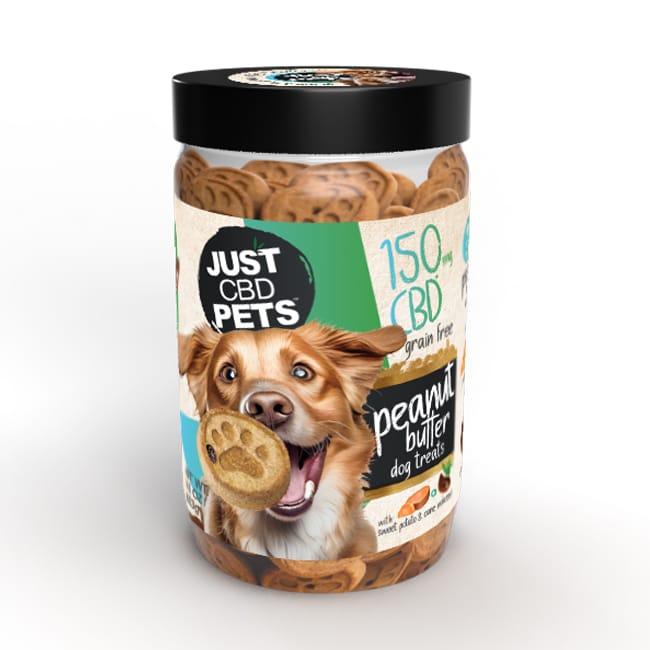
👉 Buy Here
Next up were the organic treats, which I tried on both Max and my cat, Luna. The texture was firm but manageable, and Luna (surprisingly!) loved the peanut butter flavor.
What I Liked:
- All-natural ingredients made me feel good about giving these to my pets.
- Luna seemed less skittish and more relaxed after snack time.
What I Didn’t Like:
- These treats are a bit pricier than standard pet snacks.
Rating: ★★★★☆ – Healthy, tasty, but a bit on the expensive side.
Pet Tincture – Salmon Flavor
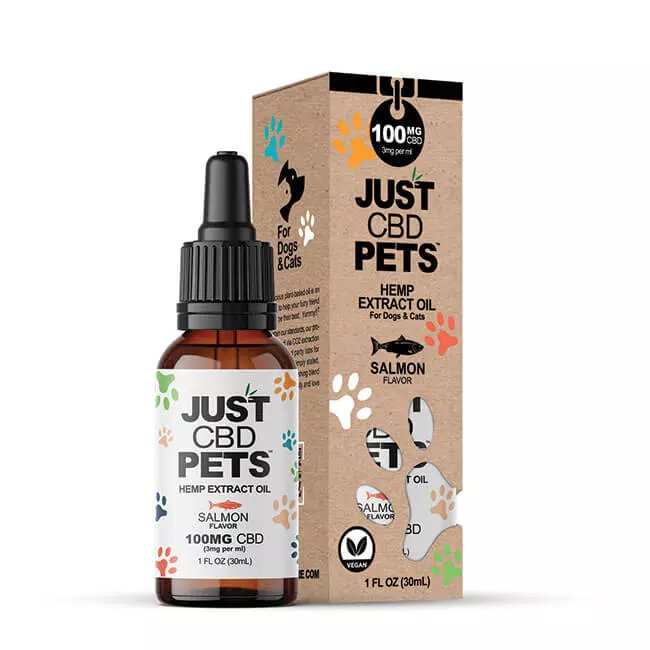
👉 Buy Here
Tinctures are a new concept for my crew, but the salmon flavor was a hit! I mixed a few drops into Luna’s food, and she gobbled it up without hesitation. Max wasn’t as enthusiastic, so I had to sneak it into his peanut butter treat.
What I Liked:
- Luna’s coat became shinier, and she seemed more playful overall.
- Easy to measure out the right dose with the dropper.
What I Didn’t Like:
- Max was fussy about the fishy taste.
Rating: ★★★★☆ – Great for cats, slightly tricky with dogs.
Pet Tincture – Bacon Flavor
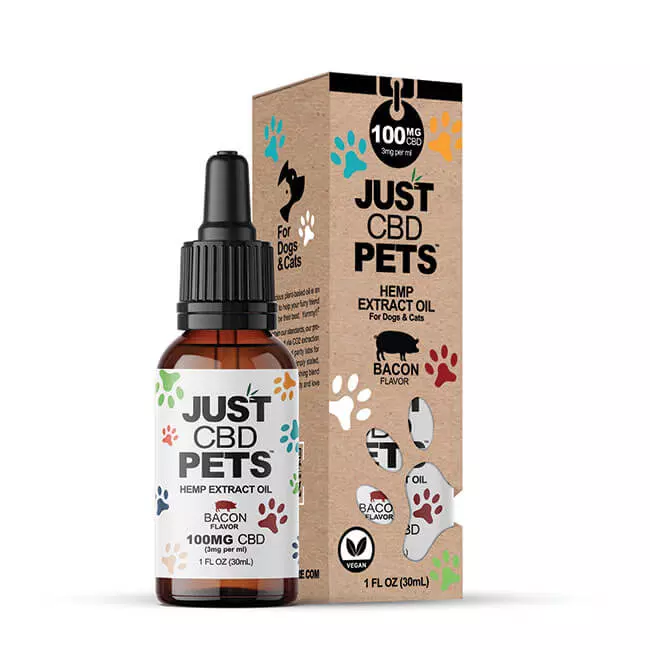
👉 Buy Here
This one was Max’s favorite! The bacon flavor made it effortless to mix into his food or administer directly. I noticed he was calmer during car rides—a game changer for our vet trips.
What I Liked:
- Perfect for picky dogs like Max.
- Noticeable improvement in anxiety-related behavior.
What I Didn’t Like:
- I wish there were a vegetarian alternative for pets with dietary restrictions.
Rating: ★★★★★ – Bacon-flavored bliss!
Overall Thoughts
Just CBD’s pet line is a win for both cats and dogs! The products are high-quality, and my pets genuinely enjoyed most of them. The tinctures stood out for their versatility, while the treats were perfect for quick rewards. That said, pricing could be a consideration if you’re on a budget, but the results are worth it.
What are the benefits of CBD for pets?
CBD can support your pet’s overall well-being by promoting relaxation, reducing anxiety, managing pain and inflammation, and supporting joint and mobility health. Many pet owners also use CBD to help with stress caused by travel, loud noises, or separation.
Is CBD safe for pets?
Yes, CBD is generally considered safe for pets when used correctly. It’s crucial to use pet-specific CBD products that do not contain THC, as THC can be harmful to animals. Always consult your veterinarian before introducing CBD to your pet’s routine.
How do I choose the right CBD product for my pet?
When choosing a CBD product, look for options specifically designed for pets. Consider your pet’s preferences (treats vs. tinctures), the CBD concentration, and ensure the product is made with high-quality, organic ingredients.
How do I know the right dosage of CBD for my pet?
Dosage typically depends on your pet’s weight, age, and specific needs. Start with the manufacturer’s recommended dose and adjust gradually based on your pet’s response. Consulting with a veterinarian for guidance is always a good idea.
How long does it take for CBD to work on pets?
The effects of CBD can vary depending on the product and the pet. Treats may take 30-60 minutes to show effects, while tinctures might work faster, especially when applied directly to your pet’s mouth.
Can CBD help pets with anxiety or stress?
Yes, CBD is commonly used to reduce anxiety and stress in pets. It can be particularly helpful during events like fireworks, vet visits, or when dealing with separation anxiety. It helps calm the pet without causing drowsiness.
What are the potential side effects of CBD for pets?
While rare, some pets may experience mild side effects like drowsiness, dry mouth, or digestive upset. These effects usually occur when the dosage is too high, so always start with a low dose and increase gradually.
Can cats and dogs use the same CBD products?
Some CBD products can be used for both cats and dogs, but it’s essential to ensure the product doesn’t contain ingredients harmful to cats (like certain flavorings or essential oils). Always check the label and consult your vet if unsure.
Are CBD treats as effective as CBD oil tinctures?
Both CBD treats and tinctures are effective, but they work slightly differently. Treats are convenient and easy to use but may take longer to show results. Tinctures often provide faster and more precise dosing, especially when administered directly.
Where can I buy high-quality CBD for pets?
High-quality CBD for pets can be found at reputable retailers like Just CBD, which offers a range of pet-friendly products including tinctures and treats. Look for transparency, lab testing, and customer reviews when choosing a brand.
- Mississippi’s Leading THC Beverage Brands - June 5, 2025
- Virginia’s THC Infused Beverage Hotspots - May 30, 2025
- Explore THC Infused Seltzers in Hawaii - May 28, 2025






